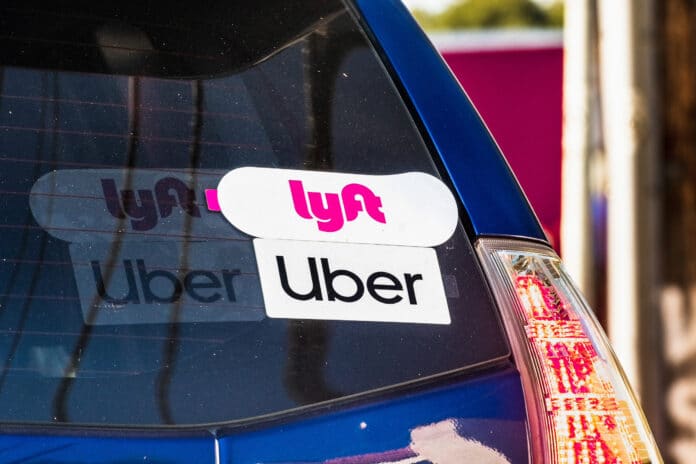
New minimum pay standards for Uber and Lyft drivers were passed in the final days of the 2024 legislative session. Starting on Dec. 1, 2024, drivers with rideshare companies will receive at least $1.28 per mile and $0.31 per minute when transporting a passenger. Those rates will receive annual adjustments in accordance with Minnesota law.
In the final hours of the Minnesota legislative session, a variety of closely-watched legislative items died as the clock ran out. However, a long-anticipated deal on minimum pay standards for rideshare drivers was one major piece of legislation that was approved before time expired.
Folded into a supplemental transportation spending bill, the new deal sets statewide standards for compensating drivers who work with transportation network companies (TNC); rideshare organizations such as Uber and Lyft.
In addition to the new pay standards, drivers will receive, at minimum, $5 for every ride no matter how short the ride’s distance or length of time. The new TNC deal also states that any gratuities received by the driver are the sole property of the driver, and those gratuities cannot be considered a part of the minimum compensation rates.
Furthermore, drivers will receive 80% of any cancellation fee if the passenger cancels a ride request after the driver has already left to pick up the passenger.
At a late-night press conference announcing the deal, House Majority Leader Jamie Long, D-Minneapolis, said the combined per mile and per minute rates would result “in a 20% increase in pay for drivers in the state of Minnesota.”
Speaking at the press conference, Gov. Tim Walz credited Sen. Omar Fateh, D-Minneapolis, and Rep. Hodan Hassan, D-Minneapolis, for their efforts in establishing the new pay standards.
Gov. Walz is expected to sign the TNC deal into law later this week. Both Uber and Lyft said they will continue their services in Minnesota under the new standards.
“Through direct engagement with all stakeholders, we have found enough common ground to balance a new pay increase for drivers with what riders can afford to pay and preserve the service. We look forward to continuing to serve both riders and drivers across the state for the foreseeable future,” Lyft said in a statement.
Uber was less enthusiastic regarding the new standards.
“We applaud the tens of thousands of riders and drivers who sent close to 100,000 emails to legislators — your voices were heard. While the coming price increases may hurt riders and drivers alike, we will be able to continue to operate across the State under the compromise brokered by the governor,” a spokesperson for the company told WCCO.
For over a year, legislators tried to establish minimum pay standards for Uber and Lyft drivers. In 2023, the Minnesota Legislature passed a different version of the pay standards, but Gov. Walz vetoed that legislation — the first veto Gov. Walz ever issued.
In March, the Minneapolis City Council approved an ordinance that would have set driver pay standards at $1.40 per mile and $0.51 per minute within city limits. After that ordinance was approved, Uber and Lyft indicated that those pay standards would make their services unsustainable. In turn, the rideshare giants announced they would cease operations in Minneapolis when the ordinance takes effect.
The same legislation that contains the newly passed statewide pay standards also nullifies the Minneapolis ordinance and prevents local governments from regulating TNCs or rideshare drivers. As such, both Uber and Lyft will continue to operate throughout Minnesota.














